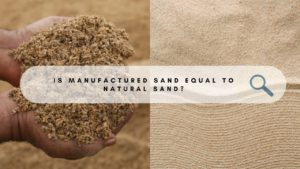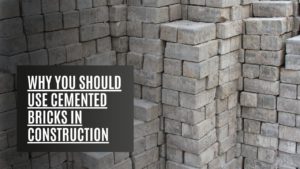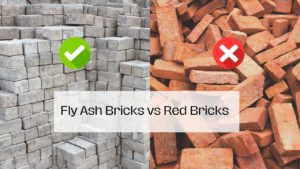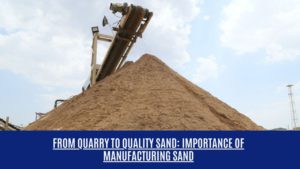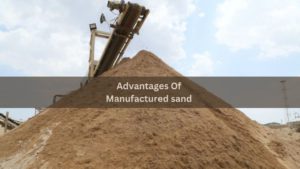Understanding the Differences Between M Sand and River Sand
M Sand and River Sand are both construction materials widely used all over the world. M Sand is a type of crushed aggregate used as a replacement for river sand. It is made from hard granite stone and is cubic in form with ground edges. M Sand is produced sand of the highest calibre and meets all international criteria. An inexpensive and environmentally beneficial substitute for river sand is M Sand. Hard granite stones are crushed to create M Sand.
M Sand is denser, more durable, and cleaner than river sand and is devoid of silt and clay particles. Due to its accessibility and capacity to provide concrete with the necessary strength, M Sand is a preferable option over river sand. River sand can be swapped out for M Sand (Manufactured Sand) while making concrete. Crushing hard granite stone yields manufactured sand. The crushed sand is graded, rinsed, and shaped into a cubical form with rounded edges for use in the building. M-Sand is manufactured sand with a particle size of less than 4.75mm.
If alluvial deposits is present in natural rivers, it is mostly made up of sand, clay, and silt. River sand is a naturally existing granular substance made up of finely separated natural quarries and mineral particles. Let’s find below M sand or river sand which is best.
M Sand vs River Sand
The following distinctions between M Sand and River Sand:
M Sand |
River Sand |
|
Composure |
M Sand is a manufactured good that is created by reducing the size of rocks, quarry stones, or bigger aggregates. Stone, gravel, or slag are crushed to create this fine aggregate. | On the other side, river sand is a granular substance that occurs in nature and is made up of tiny rock and mineral particles. |
Quality |
M Sand is made in a controlled setting where appropriate controls may be used to guarantee the sand’s quality. Due to its washing, grading, and screening processes, M Sand’s quality is higher than that of river sand. | Contaminants like silt, clay, and organic materials, which are frequently present in river sand. |
Form and Texture |
M Sand is produced in factories, so it has a consistent shape and texture. It is defect-free and has a higher surface polish. | Because it is taken from river beds, river sand has an erratic form and texture. |
Cost |
Because M Sand is produced in a factory, it is typically less expensive than river sand. The price of M Sand is influenced by how far the manufacturing facility is from the building site. | As river sand must be dug out of river beds, the cost of this material is based on where it can be found. |
Strength |
M Sand is appropriate for buildings because it has a higher compressive strength than river sand. It is more resilient and less likely to crack. | Whereas, river sand has a lower compressive strength and is more likely to crack |
Environmental Damage |
M Sand is made in a factory, hence it has a less significant environmental impact than river sand. | As the river beds are emptied of sand, the removal of river sand may cause erosion and environmental deterioration. |
Legal Concerns |
Since M Sand is not taken from river beds, it is a legal substitute for river sand. | Some jurisdictions have outlawed the mining of river sand because of the harm it does to the environment. |
Concrete strength |
Compared to river sand, M Sand has a higher concrete strength, making it appropriate for use in buildings. M Sand-produced concrete provides greater workability and compressive strength. | Although used since ages, river sand provides good workability and strength, but over the time it can deteriorate and can be dangerous to dwell into. |
Architecture |
M Sand has a homogeneous shape and texture, is free of contaminants, and may be utilized in building.
It is appropriate for brickwork, plastering, and concrete work. |
River sand, on the other hand, is not appropriate for building due to its uneven form and texture and frequent contamination with pollutants. |
Advantages/Benefits of M sand:
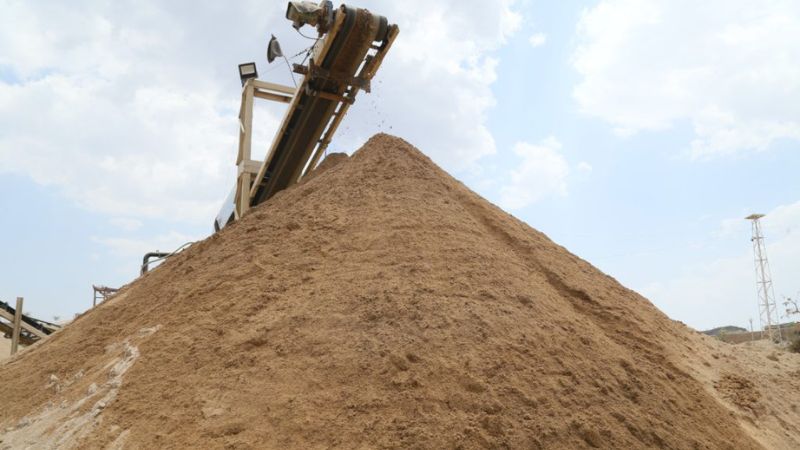
- Available all year long.
- Denser, stronger, and cleaner than the river sand, free of silt and clay particles.
- Inexpensive and environmentally beneficial substitute for river sand.
- Made with hard granite stones that have been crushed.
- Comparatively less costly than river sand.
- Obtainable in a variety of grades to meet building needs.
- Does not include contaminants like silt, mica, coal, bones, or shells.
- Produced under strict control, and its quality is continually monitored.
- Because it is inexpensive, ecologically benign, and simple to use, it is excellent for building.
- It is a superior substitute for river sand since it is made by crushing hard granite stones that have grounded edges and a cubic form.
Conclusion
In conclusion, M Sand is a hard granite stone that is crushed to create a replacement for river sand. In comparison to river sand, the benefits of M sand are that it is denser, stronger, and cleaner since it is produced in a controlled environment, devoid of silt and clay particles. Due to its availability and capacity to provide concrete with the necessary strength, M Sand is a superior alternative to river sand that is both economical and environmentally beneficial.
Now, that you know M sand or river sand which is best? So, choose wisely! Choose Raj Mineral!
Contact Us To Learn More About Our M Sand And To Request A Quote!
Also Read: Build A Stronger Home With Cemented Bricks
Follow us on @rajminerals





